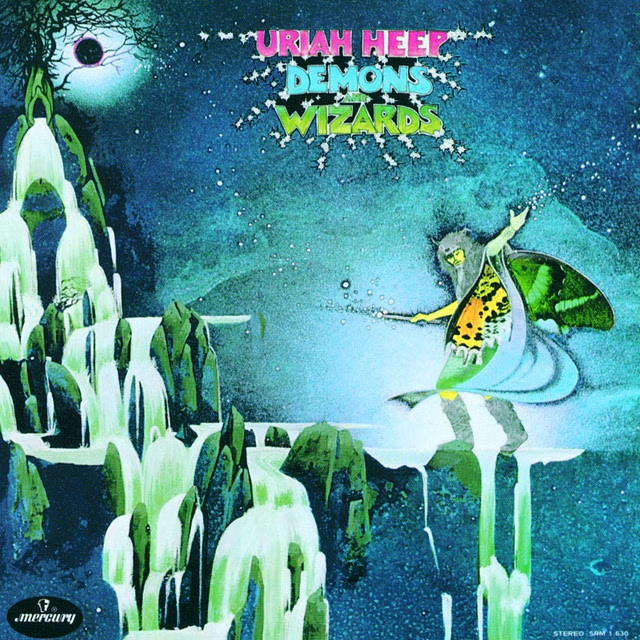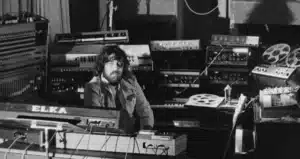Uriah Heep: The Enduring Titans of British Progressive Rock and Hard Rock
Uriah Heep stands as one of the most influential and enduring bands to emerge from the British rock scene of the late 1960s and early 1970s. Known for their distinctive fusion of progressive rock, hard rock, and early heavy metal elements, Uriah Heep carved out a unique niche characterized by rich vocal harmonies, dramatic keyboard melodies, and powerful guitar riffs. Their theatrical and often fantasy-inspired lyrical themes have helped them build a dedicated global fan base that spans decades.
Formation and Early Years
Uriah Heep was officially formed in London in 1969, but the band’s roots trace back to earlier collaborations. The original lineup included vocalist David Byron, guitarist Mick Box, keyboardist Ken Hensley, bassist Paul Newton, and drummer Alex Napier. The band’s name was taken from the memorable character Uriah Heep in Charles Dickens’ novel David Copperfield, symbolizing the theatrical and literary flair the band aspired to in their music.
Their debut album, …Very ‘Eavy …Very ‘Umble (1970), presented a raw and energetic sound that combined blues-rock influences with hard-hitting riffs and dramatic organ lines. Tracks like “Gypsy” and “Come Away Melinda” showcased their emerging style but did not achieve immediate commercial success. Nevertheless, the album laid the groundwork for their evolving sound.

The Rise to Prominence
The band’s second album, Salisbury (1971), marked a bold step towards progressive rock. It featured orchestral arrangements and a more complex sound, particularly on the 16-minute title track, which was an ambitious fusion of rock and classical influences. Although the album received mixed reviews at the time, it demonstrated Uriah Heep’s desire to push musical boundaries.
It was with their third album, Look at Yourself (1971), that Uriah Heep began to gain significant attention. Songs like the title track and “July Morning” combined heavy guitar riffs with melodic keyboards and soaring vocals, capturing a balance between hard rock power and progressive experimentation. This album established the band’s signature sound and began their climb to international fame.
The Classic Lineup and Peak Success
The band’s lineup underwent important changes early on, with drummer Lee Kerslake and bassist Gary Thain joining to form what is widely regarded as Uriah Heep’s classic lineup alongside Byron, Box, and Hensley. This lineup produced some of the band’s most acclaimed albums.
Demons and Wizards (1972) is often hailed as Uriah Heep’s masterpiece. It features a perfect blend of fantasy-themed lyrics and memorable melodies. Tracks like “The Wizard,” “Easy Livin’,” and “Lady in Black” became fan favorites and remain staples in classic rock radio playlists worldwide. The album demonstrated the band’s ability to mix accessible hooks with progressive musical complexity.
Following this, The Magician’s Birthday (1972) continued their success with tracks like “Sunrise” and the title song, which carried on their blend of theatrical rock and imaginative storytelling. The band’s live performances during this period were energetic and theatrical, further enhancing their reputation.
Challenges and Changes
Despite their artistic and commercial success in the early 1970s, Uriah Heep faced numerous challenges. Bassist Gary Thain struggled with drug addiction and tragically died in 1975, a blow that deeply affected the band both personally and professionally. Similarly, David Byron’s increasing alcohol problems led to tension within the band and eventually resulted in his dismissal in 1976.
Throughout the late 1970s and 1980s, Uriah Heep went through several lineup changes and experimented with different musical styles, including more mainstream rock and even pop influences. Albums like Firefly (1977) and Innocent Victim (1977) showcased a softer, more radio-friendly approach but met with mixed critical responses.
Persistence and Legacy
Despite fluctuating commercial fortunes, Uriah Heep maintained a loyal fanbase, especially in Europe, Russia, and South America, where their live performances continued to draw crowds. The band’s core members, particularly guitarist Mick Box, kept the spirit alive through continuous touring and releasing new albums.
Throughout their career, Uriah Heep released more than 25 studio albums, with highlights including Return to Fantasy (1975), Outsider (2014), and Living the Dream (2018). Their ability to blend hard rock power with progressive sensibilities influenced countless other bands in the rock and metal genres.
Musical Style and Influence
Uriah Heep’s sound is marked by the prominent use of Hammond organ and keyboards, layered vocal harmonies, and powerful guitar riffs. Ken Hensley’s keyboard work and songwriting were central to defining the band’s identity, along with Mick Box’s expressive guitar playing and David Byron’s dramatic vocal delivery.
Their lyrics often explore fantasy and mystical themes, reminiscent of contemporaries like Led Zeppelin and Black Sabbath but with a more theatrical, sometimes operatic approach. This combination set them apart and positioned them as pioneers within the progressive and hard rock scenes.
Conclusion
Uriah Heep’s enduring appeal lies in their ability to combine heavy rock energy with melodic sophistication and theatrical storytelling. Despite internal struggles and changing musical trends, they have remained a vital force in rock music for over five decades. Their influence resonates with both classic rock enthusiasts and newer generations, cementing their legacy as one of the true titans of British rock.





